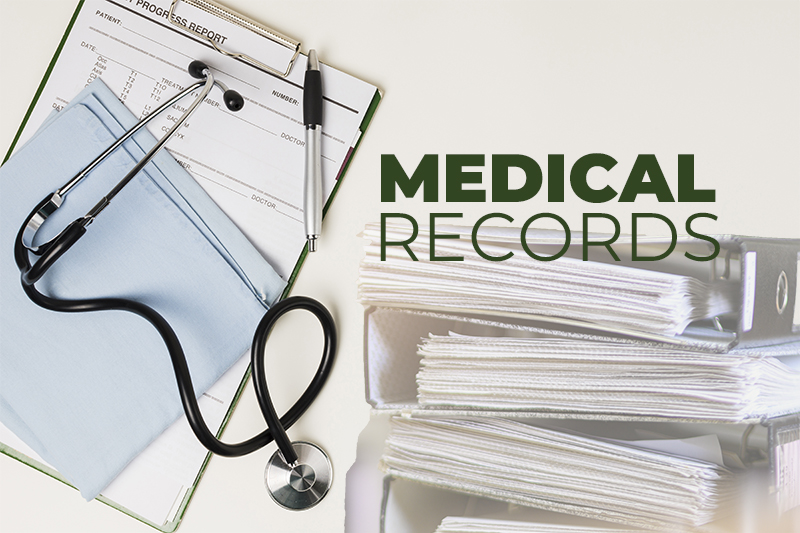A medical practice handles countless papers daily which can be difficult to manage as they are prone to errors and misplacement. This is when medical record scanning becomes useful. It is the process of converting physical paper documents into electronic images. Medical institutions should ideally implement digitization of medical records with the help of a document scanning company to ensure patient safety and to comply with HIPAA regulations.
In today’s electronic age, it’s vital that all medical practices have a system in place to properly store and manage patient records. Not only does medical record scanning helps in streamlining office operations, it also helps improve the quality of patient care as well as provides a more efficient way of managing patient files and records.
Risks of Holding Paper-based Medical Records
Medical records in paper format increase the risk of compliance-related issues because protecting paper-based data is difficult. It also increases the chances of these medical records getting lost or misplaced or mishandled. Medical records contain valuable patient information that may be used by data criminals for illegal purposes. Over the last decade, data breaches in the healthcare industry have increased drastically. In fact, the healthcare industry as a whole has the 4th highest number of data breaches among all other industries in the US. Another risk of having paper medical records is that it becomes difficult for physicians to access data in case of an emergency and this affects quality patient care. Due to these risks, it is always best to scan medical records and store them digitally in a secure database.
Need for Medical Record Scanning
- Easy accessibility: When you save data on paper, such as patient information, you run into a lot of problems. Medical record scanning services can help you organize the data of active and inactive patients, save up physical space, and eliminate misfiled records. The data can be accessed promptly and stored flexibly after these documents are scanned and uploaded into an effective EMR system.
- Better security of medical data: Data is an important element of a company and it must be protected at all costs. Similarly, patient data is important for any healthcare organization. As we all know, using EMR will boost your company’s production and efficiency. There are fewer chances of errors occurring because the medical record scanning process is automated. If you want to be assured that your documents are safe, make a backup of them.
Data backups will assist your organization in protecting data from both internal (thefts, file misplacement, etc.) and external (natural calamities) dangers. Only authorized healthcare staff should have access to these files, which can be protected with strong passwords. The importance of safeguarding the patient’s data cannot be emphasized enough.
- Efficient management of the records: The majority of healthcare organizations are struggling with a massive backlog of medical records. Outsourcing medical record scanning to a well-established document management company can help healthcare organizations solve their current issues. Scanning and indexing medical data are the best options for efficiently managing and streamlining documents. Though there are many advantages provided by medical record scanning, the following are the most important ones:
- Improved quality of service
- Improved patient satisfaction
- Bring down the overall cost of document management
Medical records that have been digitized can be stored in several locations, preventing data loss. This helps to access medical records instantly.
- Improves patient-provider relationship: The use of an electronic medical record (EMR) enhances the connection and relationships that already exist between physicians, patients, and other staff members. Presenting various healthcare papers in an organized digital format, such as chart summaries, medical bills/notes, patient files, and so on, can improve communication and collaboration. Medical prescriptions can be digitized to improve clarity, decrease errors, and assist patients in better grasping the instructions. EMR encourages members to collaborate on tasks that are allocated to them. The healthcare authorities can also easily view the booking schedules. Furthermore, such features and automated processes can improve patient communication and facilitate the digitization of health records.
How to Scan Your Medical Records
Once you have realized the significance of digital medical records, the next best thing is to convert all medical documents into digital format. You can scan all your medical records in two ways:
- Scan all data by yourself: The first approach is to perform data conversion on your own. While it may appear to be the simplest and most cost-effective option, healthcare providers should analyze whether the employees of your organization have the training or expertise to scan and index all medical records accurately. The hazards of data breaches, wrongly indexed files, and low-quality scans are just too great to ignore, and mitigating them can be costly. If you lack confidence in your employees’ ability to scan and index huge volumes of medical records, then it is best to hire a professional vendor.
- Outsource to scanning services: Hiring a professional document scanning firm is the best option when you require fast, accurate, and high-quality digitized medical records An HIPAA-compliant medical records scanning firm with several years of experience can help healthcare providers in digitizing all patient information for transfer into an EMR system safely and securely.
It is always a good idea to get the support of medical document scanning services to manage the medical record scanning service. In-house performance by less-trained professionals can result in a loss of revenue in the healthcare industry. It will also have an impact on the quality of patient service by lowering the emphasis on patient care. As a result, outsourcing to a patient record scanning service is always a wise decision. The quality of medical document scanning is always the most important factor healthcare organizations must have in mind to ensure quality patient care.




